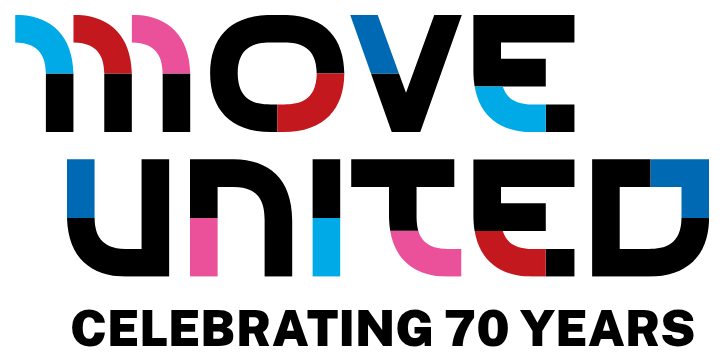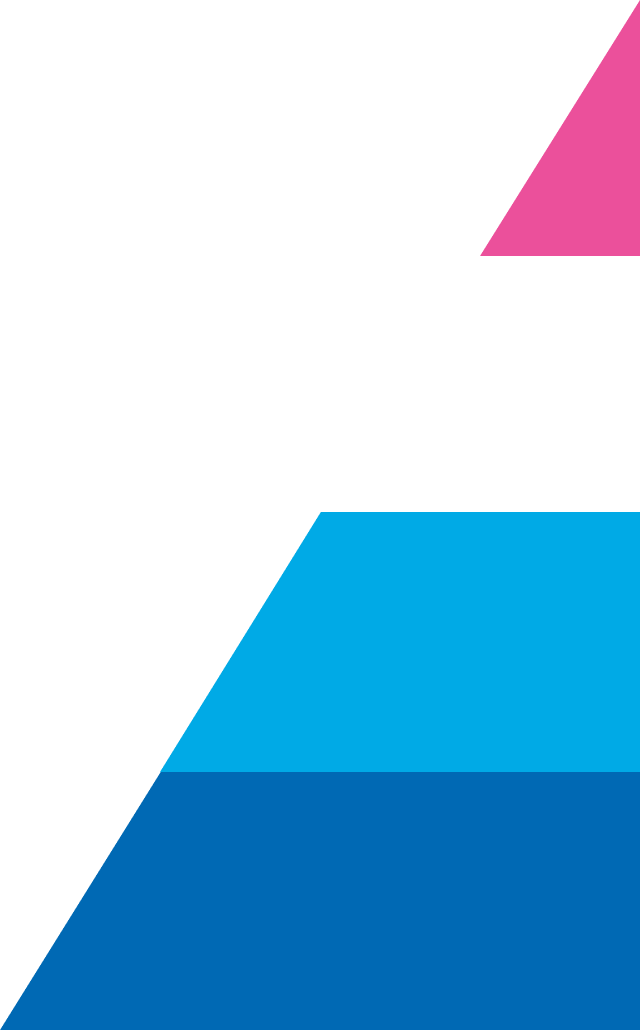College Transition for Athletes in Adaptive Sports
Students with physical disabilities and mobility impairments represent roughly 7% of the undergraduate student population with disabilities nationally[1]. One population that is often overlooked within this specific population is adaptive athletes. Athletes with physical disabilities who are preparing for the transition to college have a different set of challenges to navigate than their non-disabled peers. In addition to thinking about the right academic fit, they may also be looking for a college that is physically accessible and offers adaptive sports. Although colleges are required to be compliant with both the Americans with Disabilities Act (ADA) and Section 504 of the Rehabilitation Act (Section 504), we also know that what is technically compliant, is not always usable for each individual. This article explores student athletes’ transition to college and provides an overview of schools that offer adaptive sports and adaptive club sports.
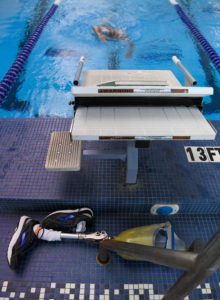
(Photo by Reed Hoffmann on 6/7/18)
Photo copyright Reed Hoffmann. Nikon DSLR, Aperture Priority, ISO 3200, 1/250 at f/4, 0.0 EV, Nikkor VR Zoom 24-70mm f/2.8 lens at 24mm.
It’s critical for student athletes with physical disabilities to understand the difference between high school and college when it comes to disability support and accommodations. High schools provide accommodations under the Individuals with Disabilities Education Act (IDEA) and Section 504. Colleges provide accommodations under the Americans with Disabilities Act (ADA), as well as Section 504. While the distinction may not be apparent, what that means in practice is that the accommodations that a student had in high school may not directly translate to college; In college, students have to request accommodations and provide documentation of their disability (for most students with a physical disability, the documentation is a letter from their healthcare provider). The accommodations that a student has in high school typically don’t concern housing, dining, and transportation, which may be necessary in the college setting, especially if a student wants to live on campus. Students with physical disabilities should consider all of their daily living needs when looking at colleges: consider the entirety of a day and typical schedule, and ask: what assistance, if any, might I need (e.g.: getting dressed, maneuvering to classes in the winter time). It also helps to start working on transition and independent living skills as early as the 9th grade.
Students who are looking to play collegiate adaptive sports either at the intercollegiate or club level will want to identify schools that offer these programs. Since there is no one governing body for collegiate adaptive sports, it can be challenging to find an up-to-date list of comprehensive programs. Here are a few resources to help with the search:
- American Collegiate Society of Adapted Athletics (ACSAA): Colleges/Universities that Offer Adapted Sports
- GRIT: Collegiate Adaptive Sports Guide
- AbleThrive: 21 Colleges with Adaptive Sports Programs
It’s important to note that these programs are always evolving. If you are interested in a specific sport, it’s best to contact the college’s athletics department and Disability Support Office for the most current information. If you aren’t sure that you want to play a college sport, but you know that you will want to access the fitness center, be sure to go and visit the fitness center on your college tour. I’ve outlined a number of guiding questions related to evaluating college fitness centers in an article: Accessible Fitness: Tips for Assessing College Recreation Facilities for Students with Disabilities.
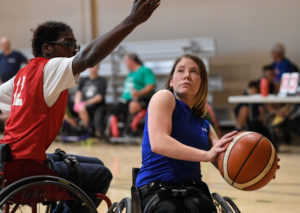
(Photo by Reed Hoffmann on 6/8/18)
Photo copyright Reed Hoffmann. Nikon DSLR, Aperture Priority, ISO 7200, 1/500 at f/2.8, 0.0 EV, Nikkor VR Zoom 70-200mm f/2.8 lens at 98mm.
Many of the schools highlighted in the lists above have facilities (recreational, housing, and academic) that go beyond ADA compliance. Students might choose to check out these schools and programs knowing that there is an increased emphasis on accessibility and a culture of creating accessible spaces. Here are a few tips to consider when looking at colleges with adaptive sports programs:
1. Visit the School
-Set up a meeting with the Disability Support Office (DSO) and the athletics department. Tour the facilities and be prepared to ask questions. If you need help thinking about what questions to ask, check out these articles: Tips for Transitioning to College with a Mobility Impairment and College Transition for Students Who Use Mobility Devices
2. Attend a summer camp
-The University of Illinois Champaign is one of the schools that offers wheelchair basketball and track summer camp. Attending a camp is a great way to get a sense of the school and its facilities.
3. Talk to current student athletes/alums
-If you are considering attending a school, speak with the DSO and coaches. Ask them if they can connect with you current students. This way, you can ask the students about their experience.
Participating in college sports can be a great way to enhance your college experience. Using the information here can provide you with a starting point to explore the options that might be available to you.
About the Author:
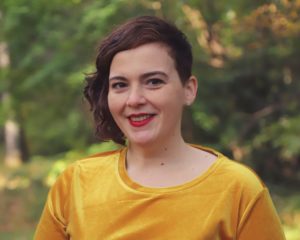
Annie Tulkin is the Founder and Director of Accessible College, where she provides college transition support for students with physical disabilities and health conditions nationally. Annie was the Associate Director of the Academic Resource Center at Georgetown University for nearly 6 years. In that position she supported undergraduate, graduate, and medical students with physical disabilities and health conditions and oversaw academic support services for the entire student body. Annie has worked in the field of disability for over 10 years. She holds a Bachelor’s Degree in Secondary Education from DePaul University, a Masters in Special Education from The University of Wisconsin-Madison, and a Certificate in Health Coaching from Georgetown University. Annie was a Peace Corps Volunteer (Mongolia, ‘03-’05) and a Fulbright Fellow (Mongolia, ‘07-’08). She resides in Silver Spring, MD with her husband and toddler.
Website: www.accessiblecollege.com
Facebook: @AccessibleCollege
Twitter: @AcssCollege
[1] U.S. Department of Education, National Center for Education Statistics. (2019).
Digest of Education Statistics, 2017 (2018-070).
